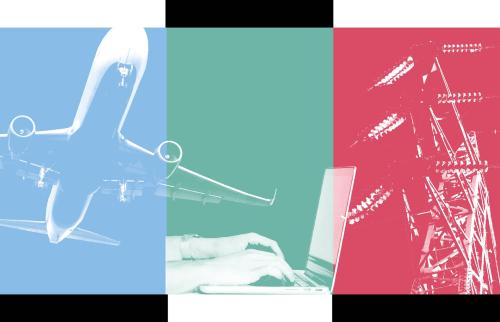When Walter Wriston of Citibank pointed out that money is really information, what he had in mind was an expansion of banking into other parts of the information business.
But the lesson for people in the information business was that maybe they should get into banking.
In the early 1980s, the Miami Herald, the Los Angeles Times and the Chicago Tribune collaborated with AT&T to start a “Videotex” service in their subscription areas, including local news for soccer moms, Dutch auctions, weather, maps of where the fish were biting, and…banking.
Banc One led the team creating the interactive payments service through television sets. It was launched with great enthusiasm but quickly crashed and burned-mostly because it didn’t work.
Now, a subsidiary of Rupert Murdoch’s News Corp., the BSkyB satellite television service, has created a joint venture with British Telecom and Hongkong and Shanghai Bank to deliver home banking via television sets. One pillar of this business is the established Midland Bank pay-by-telephone service, with almost two million subscribers, the largest in the world.
The other is the descrambling and billing system built into the BSkyB structure. This technology ostensibly offers the most ambitious private-sector security procedure now in use.
It involves a smart card with eight times the capacity of the cards used by the Visa or Mondex stored-value payments cards and twice the capacity of the code-generator card built into the “electronic check” system pioneered by BancBoston, Bank of America, Sun Microsystems and the Defense Department.
Each reader for the BSkyB card, located in the black box descrambler atop the householder’s television set, has been specifically adjusted to work with this householder’s card and no other. In effect, the subscriber has been given a complex digital signature. Adi Shamir, an Israeli mathematician, devised the BSkyB algorithms. Shamir is the “S” in RSA Data Security, the gold standard of American encryption suppliers.
The householder’s conventional-looking remote communicates not only with the box but through it to the satellite, whence the message moves on to the accounts-receivable computer at BSkyB, informing it that this address is to be billed for this show. By pre-arrangement, common in England, the subscriber’s bank can be authorized to deduct from his account the money the BSkyB computer says he owes.
The average BSkyB subscriber spends $100 a month on programs, which means that News Corp. has revenues of $2 billion a year from the service and also that it would pay a thief to spoof the system if he could, and thus pays Murdoch to make it spoof-proof. Synchronized to the satellite, the box keeps changing the codes and the smart card matches them.
Smart cards have become a significant part of the payments machinery in Europe, especially in Belgium and the Netherlands, where vending machines, parking meters and laundromats have been equipped to accept them. Promoters have cleverly marketed the cards as the payments device “for the little things in life.”
Murdoch already has the income stream; his subscribers already have the card. Obviously, the same process whereby the BSkyB computers bill subscribers for their TV shows can be used to bill the customers of the power-and-light company or the mortgage holder or the telephone company or the insurance company or anyone else who sends repetitive bills. Cable companies have yearned wistfully for an interactive television that would permit e-commerce to grow on a television set chassis.
The satellite-like the cable head-offers a broadband channel. And Murdoch’s descrambler box provides quite a lot more security than you can get from the cable head end-or the Internet. To the extent that security worries hold back “home banking,” Murdoch offers comfort.
Payments services have obvious cost wedges that can be eliminated by new technology-the checking system with its bills in the mail and checks in the mail, the handwork of telephone bill paying, the Visa/MasterCard verification centers for telephones and mail order and for e-commerce.
And of course there are other areas of finance, especially retail finance, where wasteful practices persist in large part, because the Federal Reserve or the Uniform Commercial Code have been hidebound. But the defenders of tradition must fight not only against direct assault, but also against infiltrators already establishing businesses behind their lines; they won’t be able to hold that bridge forever.
None of this is guaranteed to work. HSBC made the BSkyB banking venture its lead promotion in September, advertising it in newspapers and on television and distributing scads of rather incompetently prepared brochures.
It is difficult to believe that the vulgar hi-jinks portrayed in HSBC promotion booklets will lure Americans to spend on the service. And HSBC has gone public with the service before it can do much. In the first months, home banking through the satellite converter box will be good for accessing information about accounts and moving money among them – not for paying bills, which is advertised as a “service for the future.”
Still, it’s free for anyone who has a BSkyB converter, and the bank will supply a satellite-reception dish and transponder to anyone who wants to do banking through a television screen, with big price reductions on the installation for those who also take the program service.
For all the attention paid to liaisons of telephone companies and cable operators, it’s possible that the portal to the future will be opened by alliances between the entertainment/information industries and the banks-especially when it’s the entertainment people who have created and pay for the technology.



Commentary
Op-edMurdoch’s Moves Herald TV Banking
November 5, 1999